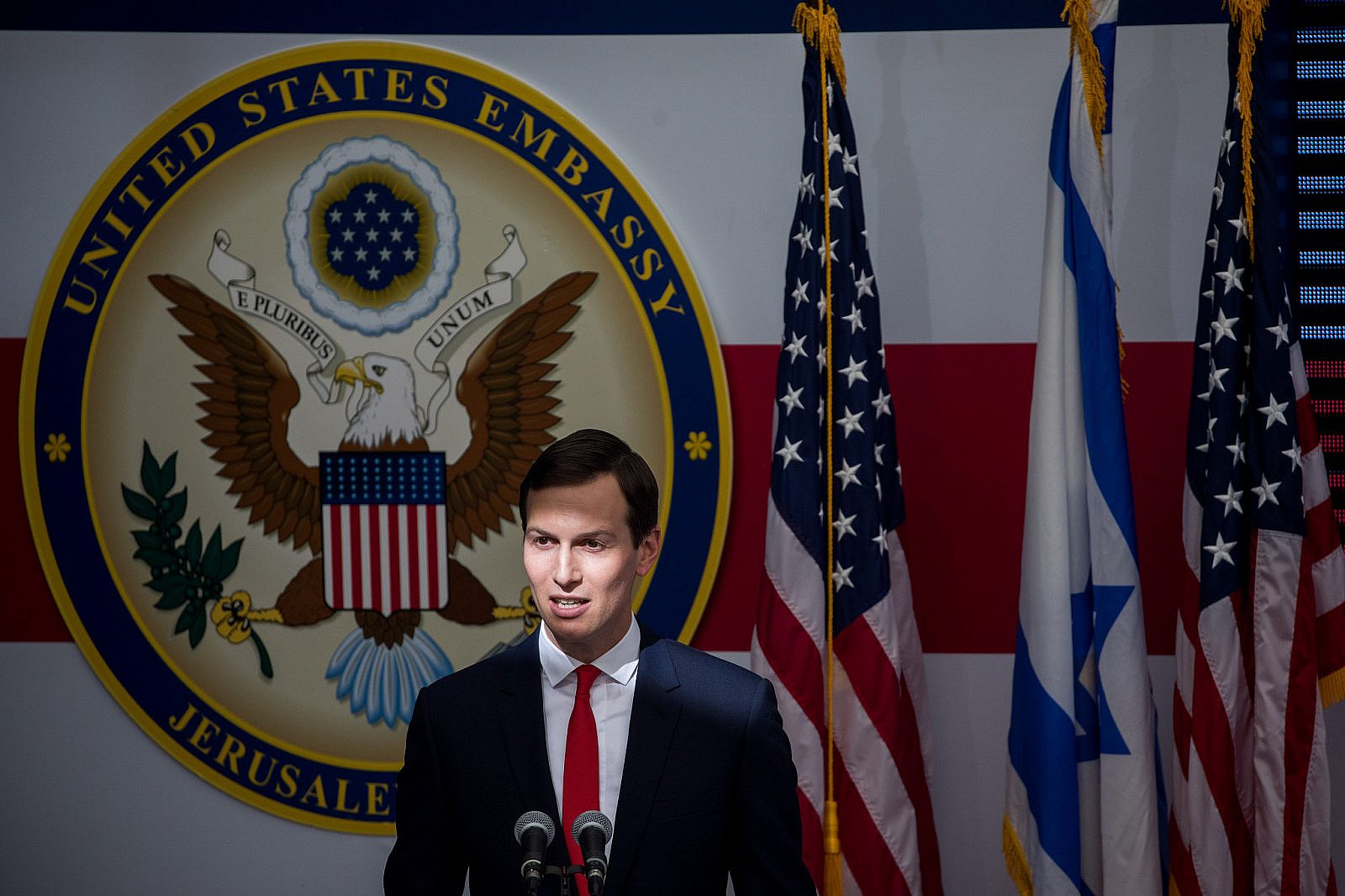Biden warned of Israeli annexation 50 years ago. Will he finally stop it?
On Aug. 31, 1973, Joe Biden, then a young Democratic senator not even a year in office, met with Israeli Prime Minister Golda Meir. Although Biden has publicly reminisced numerous times about their encounter , he has rarely, if ever, mentioned that he had told Meir — according to an official Israeli record of the meeting recently published by journalist Nadav Eyal — that “he sees the platform of [Israel’s] Labor Party as creeping towards annexation of the [Palestinian] territories.” At the time, there were only about 1,500 Jewish Israeli settlers across the Green Line.
Thirty-seven years later, on March 11, 2010, Biden gave a speech at Tel Aviv University as Vice President under Barack Obama. In a direct appeal to the Israeli public — during which he again reminisced on his 1973 meeting — Biden warned that “the status quo is not sustainable. It’s no secret the demographic realities make it increasingly difficult for Israel to remain both a Jewish homeland and a democratic country in the absence of the Palestinian state.” By that point, the population of Israeli settlers in the West Bank had grown to 311,000 — roughly 200 times the number since Biden spoke with Meir.
Ten more years passed. Biden, now the President-elect, said the following half a year ago on the campaign trail: “I do not support annexation. Israel needs to stop the threats of annexation and stop settlement activity because it will choke off any hope of peace.” According to official Israeli data, the number of settlers in the West Bank — without even counting some 200,000 living in annexed East Jerusalem — surpassed 441,000 last year, 40 percent more since the TAU speech.
Saying the quiet part out loud
It is worth juxtaposing the clarity of what Biden said, in private, in 1973 with the position stated, in public, in 2010. What Biden recognized correctly nearly 50 years ago — that Israel would make the occupied Palestinian territories its own — has indeed been realized. Through relentless, steady, brutal policies and actions, consecutive Israeli governments have brought about further dispossession, demolitions, and forcible transfer for Palestinians, while in tandem, bestowing their confiscated lands and homes to Jewish Israeli settlers.
 |
Biden was wrong about one thing, though: the so-called “status quo” — a reality of endless theft of Palestinian land, life, and liberty — was, and apparently still is, very “sustainable.” Yet that sustainability is not God-given, nor does it exist in a vacuum: it is sustainable because it is underwritten by U.S. foreign policy.
Biden’s persistent claim that he “does not support” annexation, while it has in effect already happened, amounts to nothing but empty rhetoric. It is the same empty rhetoric that describes Israel as a “Jewish” and “democratic” state, even though it has been neither for decades. Rather, Israel is a one-state reality with demographic parity between Jews and Palestinians, inherently undemocratic as millions of Palestinians are systematically disenfranchised.
This chorus of futile words, echoed for years by both Democrats and Republicans, set the stage for the policies of Donald Trump, Jared Kushner, and David Friedman. Israel’s open consideration of de jure annexation is not a dramatic departure from its previous path: it is the natural extension of a reality that was long accepted and tolerated by the international community, first and foremost by the United States. The launch of “Deal of the Century” in January 2020 simply spelled out this reality: Israel’s control over the entire area and all the people between the Jordan River and the Mediterranean Sea is permanent.
Thanks to Trump’s tendency to say the quiet part out loud, the pre-existing fault lines that have long been obscured in Israel-Palestine have become more evident. Before Trump, American presidents shielded Israel from international consequences while paying lip service to a negotiated solution with the Palestinians, even as unilateral facts on the ground devoured the very issues that were supposed to be negotiated. With Trump, that lip service ended, and the president openly backed the occupying power’s vision of a Greater Israel in which millions of Palestinians are forever disenfranchised.
So, what will happen after Trump?
 |
The 51st state
When Biden steps into the White House in January, he will be entering an era in which Washington is redesigning its involvement in the Middle East, a fact that is already informing strategic developments in the region. This process has paved the way for Israel and other autocratic Arab states to swap the prospect of de jure annexation with the familiar, ongoing reality of de facto annexation and occupation over the Palestinians, bundled with some arms deals for Israel’s friends.
In this “New Middle East,” there is room for visa-free travel for the people that count in the region (Palestinians need not apply; they should instead be thankful for the modernized checkpoints to be allocated to them, courtesy of the United Arab Emirates), and there is room for “prosperity” (for those willing to check their dignity and rights at the door). There is no room for humanity, justice, or freedom.
The bandwidth for Biden’s foreign policy in general, and for Palestinians specifically, will likely be limited as Washington focuses on the many urgent issues left broken by the outgoing administration. But limited bandwidth or not, Biden cannot wash his hands from what Israel is doing to the Palestinians.
What transpires in Palestine is the result of actions by a country often referred to as America’s 51st state. It is the United States which backs, funds, and arms Israel, and which overrides international consensus by vetoing resolutions at the UN Security Council. It is the United States that allows Israel to dictate that, in Palestine, the long arc of the moral universe will not bend toward justice.
 |
Given Biden’s political career since that private moment of clarity in 1973, what is there to suggest that he will dramatically halt Washington’s underwriting of Israel’s perpetual oppression of Palestinians? To be sure, Biden will be more subtle; norms will be reinstated, public displays of Palestinian humiliation will be taken down a notch, and the State Department will resume friendly connections with Ramallah. It will look nicer — just like a modernized checkpoint.
Moral backbone
But it doesn’t have to be this way. In 1986, Biden spoke at the Senate’s Foreign Relations Committee not on the situation in Palestine, but rather a similar context in which one group of people was advancing its supremacy over another: apartheid South Africa. Chastising the Reagan administration’s refusal to sanction Pretoria, Biden had this to say:
“I hate to hear an administration and a Secretary of State refusing to act on a morally abhorrent point… I’m ashamed that this country puts out a policy like this that says nothing — nothing. It says continue the same. We put no timetable on. We make no specific demands. We don’t set it down. I’m ashamed that’s our policy. That’s what I’m ashamed of. I’m ashamed of the lack of moral backbone to this policy.”
That “moral backbone” must now be extended to Israel-Palestine, too. But how?
That will all depend on progressives in the United States, who have been resolutely clear that a foreign policy which centers human rights is the natural extension of domestic policies of racial justice, and who believe equality at home and equality abroad go hand in hand. In 2021, progressives will need to remind President Biden of his own early clarity of where Israel’s occupation was going, and demand that he do the decent thing to end Palestinian subjugation by one of America’s closest allies.
Trump’s defeat is a hopeful moment that is desperately needed in our broken, overheating world. It is an opportunity to assert the growing power, clarity of voice, and conviction of a movement whose time has come. Alone together, 14 million Jews and Palestinians remain on the land — separate, yet together. This is our life, our future: together. Yet perpetually underwriting injustice is not a destiny, it is a political choice. Other political choices point toward freedom, equality, and justice. These choices are in our hands.



No comments:
Post a Comment
Note: only a member of this blog may post a comment.